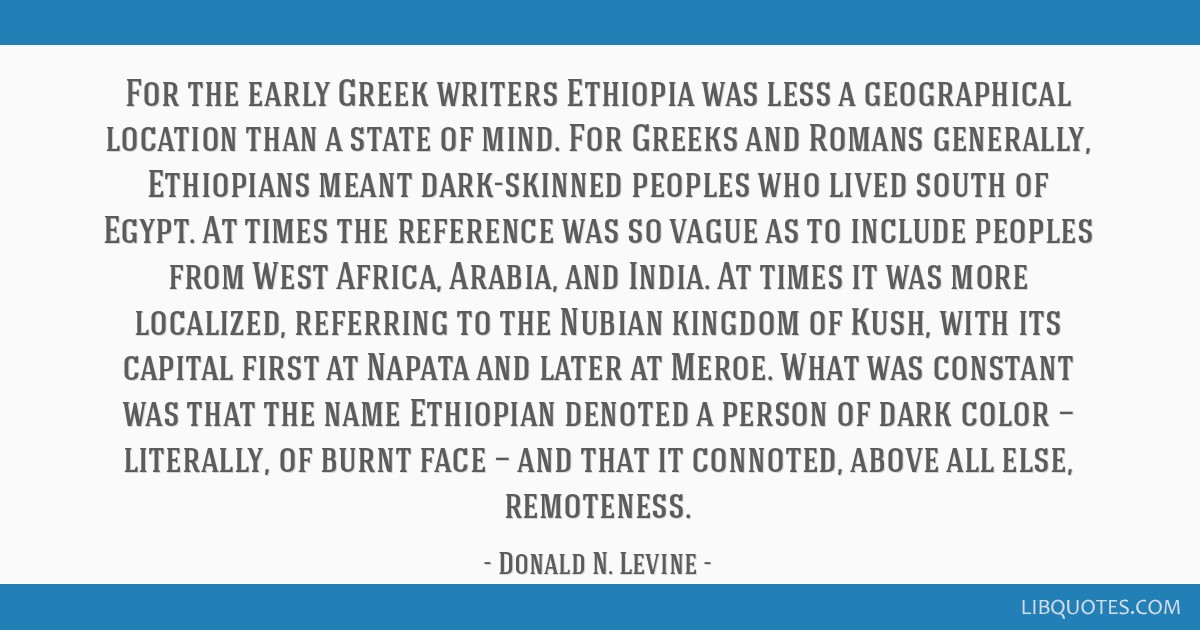For the early Greek writers Ethiopia was less a geographical location than a state of mind. For Greeks and Romans generally, Ethiopians meant dark-skinned peoples who lived south of Egypt. At times the reference was so vague as to include peoples from West Africa, Arabia, and India. At times it was more localized, referring to the Nubian kingdom of Kush, with its capital first at Napata and later at Meroe. What was constant was that the name Ethiopian denoted a person of dark color — literally, of burnt face — and that it connoted, above all else, remoteness.
Donald N. Levine (2014), Greater Ethiopia: The Evolution of a Multiethnic Society. p. 1























